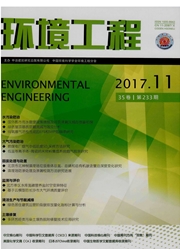

 中文摘要:
中文摘要:
从广东省韶关市某露天铀尾矿堆中筛选分离出一株优势菌株,通过形态观察和16S rDNA基因测序比对,初步鉴定该细菌为苏云金杆菌(Bacillus thuringiensis,简称Bt)。研究了环境条件因素(温度、pH值、盐浓度)对该细菌繁殖增长的影响及其对铀的耐受性。通过生长特性研究确定该细菌的最适生长温度为30℃,pH=7.0,盐度适应范围为0.5~60 g/L。对铀的耐受性实验表明:在接种量为25%(体积分数),初始pH为4.0~10.0和温度为30℃条件下,该菌在铀初始浓度为100 mg/L,NaCl质量浓度为8%以内可保持良好的生长能力。研究结果显示,该细菌对铀具有良好的耐受性,表明其在铀的浸出及铀污染土壤的生物修复方面有潜在的应用前景。
 英文摘要:
英文摘要:
A strain of dominant bacteria was isolated from a uranium mill tailing piles located in Shaoguan city,Guangdong province,China. The bacteria was identified as Bacillus thuringiensis( named Bt) on the basis of its colony morphology,physiological and biochemical characteristics,as well as 16 S r DNA sequence homology analysis. Its uranium tolerance and the effect of different conditions( temperature,pH value,Na Cl concentration) on its growth were evaluated through batch experiments in the presence of 5 mg / L U^6+liquid culture through analyzing the value of D600 nm. The results of single factor growth character experiments indicated that the optimum temperature,pH and salinity range for growth were 30 ℃,pH = 7. 0,and 0. 5 ~ 50 g / L( NaCl),respectively. The strain could tolerate a uranium concentration up to 100 mg / L U^6+ at 25%incubation amount,30 ℃,initial pH 4 ~ 10,and it could preserve high growth activities in the salinity less than 8%. The results indicated that Bt strain has high resistance to uranium and has potential in application for bioleaching of uranium and bioremediation of uranium-polluted soil.
 同期刊论文项目
同期刊论文项目
 同项目期刊论文
同项目期刊论文
 期刊信息
期刊信息
